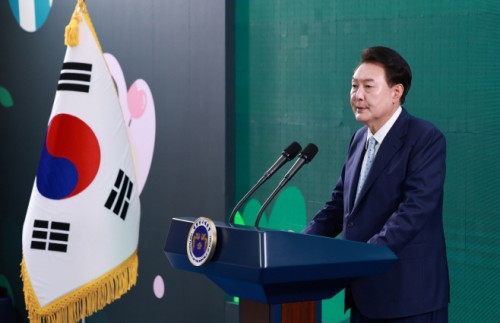 |
| President Yoon Suk-yeol speaks during the inaugural meeting of the innovation committee for mental health policies in Seoul on June 26, 2024./ Source: Yonhap News |
AsiaToday reporter Hong Sun-mi
A position of Minister of Political Affairs in charge of enhancing communication between the government and the National Assembly will be created. A new ministry of population strategy to address low birthrates and a rapidly aging population will be launched, while the Ministry of Gender and Family will be maintained despite the Yoon Suk-yeol government’s controversial stance to eliminate the ministry.
The government on Monday announced the plan following high-level meetings with the ruling party. The position of Minister of Political Affairs was revived in 11 years after being abolished in 2013 when President Park Geun-hye took office.
The move indicated President Yoon Suk-yeol’s willingness to strengthen communication with the National Assembly, where the main opposition Democratic Party (DP) has 108 seats out of 192. The political affairs minister will be performing duties specially designated by the president or the prime minister under the direction of the president.
The government plans to propose a bill this month to revise the Government Organization Act to form a minimum number of organizations and personnel to assist ministers in their work. The bill will also include the creation of a new population strategy ministry, which President Yoon announced at a press conference on the second anniversary of his inauguration in May. The new ministry will serve as a strong control tower for evaluating population policies of related ministries and local governments while focusing on population-related strategies, planning and coordination, and pre-deliberation of budgets related to low-births. The population strategy ministry will be responsible for drawing up population policies and mid- to long-term strategies, taking over the tasks currently managed by the health and finance ministries. The government predicted that the new ministry may go into operation about three months after the revision bill is passed.
The reorganization plan, however, did not include the abolition of the Ministry of Gender Equality and Family.
#minister of political affairs
Copyright by Asiatoday
Most Read
-
1
-
2
-
3
-
4
-
5
-
6
-
7





















